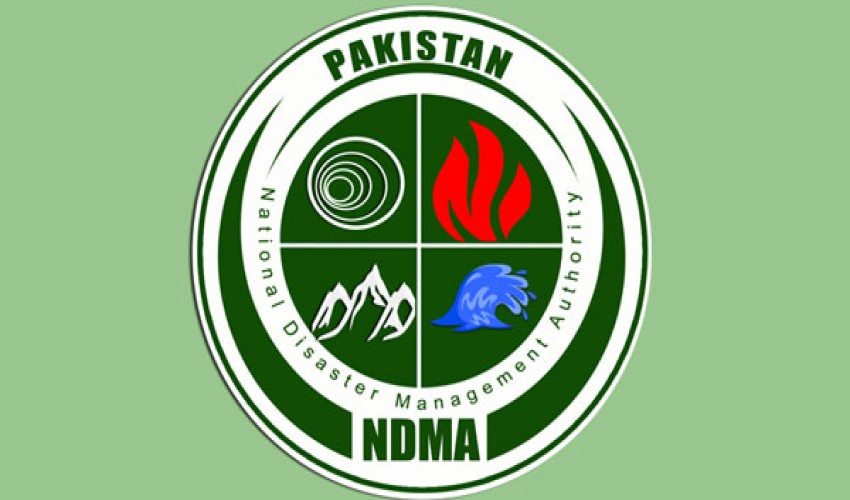
Islamabad : The National Emergencies Operation Center (NEOC) of the National Disaster Management Authority (NDMA) has issued a comprehensive monsoon forecast, highlighting expected rainfall intensities and potential impacts across various regions of Pakistan for the month of July.
The forecast indicates that rainfall at isolated places of Mardan, Malakand & Hazara Divisions of Khyber Pakhtunkhwa is expected in 3rd week of July while heavy to very heavy rainfall is expected in 4th week of July. In 1st and 2nd week of July Lahore, Sargodha, Faisalabad & Gujranwala Districts of Punjab and capital territory, Islamabad will receive 15-50 mm rainfall at isolated places while in 4th week potential flooding in ICT, Rawalpindi, Lahore, Sargodha, Gujranwala & Faisalabad, hill torrents in DG Khan, moderate to heavy rains in Sahiwal, Multan & Bahawalpur is expected.
As per the latest projections from the NEOC Mirpurkhas, Karachi, Hyderabad, Nawabshah, Larkana & Sukkur districts of Sindh will receive 30-75 mm rainfall in the month of July while in 2nd and 4th week of July heavy to very heavy rainfall is expected in these areas. In 4th week of July Astore District of Gilgit Baltisitan and isolated places of AJ&K to receive heavy to very heavy rainfall, potential severe flooding in nullahs and rivers.
Moderate to very heavy rains may cause riverine and flash flooding, urban flooding, landslides in hilly areas, and potential GLOF events. In light of these projections, the National Disaster Management Authority (NDMA) has advised Provincial Disaster Management Authorities (PDMAs), District Disaster Management Authorities (DDMAs), and other relevant line departments to remain vigilant and prepared to respond to any emergent situations. It is imperative for departments to ensure the pre-placement of machinery and the availability of relevant staff in vulnerable areas.
Local departments are urged to sensitize residents living along riverbanks and associated nullahs about the expected increase in water flows, and to facilitate timely evacuation of at-risk populations from low-lying and flood-prone areas as per evacuation plans. Additionally, citizens are advised to take extreme precautionary measures, such as staying away from electric poles and weak infrastructure, and refraining from driving or walking in waterways.
Islamabad :- Country Director World Bank, Njay Benhassine called on Minister for Planning Development & Special Initiatives Ahsan Iqbal to discuss the progress and current status of the ongoing projects supported by the World Bank. Additional Secretary and senior officials of the Ministry attended the meeting.
During the meeting, Minister Ahsan Iqbal expressed his gratitude for the continuous support provided by the World Bank. He emphasized the importance of expediting the implementation of various project components and instructed the relevant authorities to accelerate their execution to ensure timely completion.
The Minister also highlighted the comprehensive nature of the “5Es Framework” that encompasses all the important sectors. He noted that development partners, including the World Bank, regard this framework as crucial for achieving sustainable development and success. The Minister also discussed about the development of Pakistan’s 20 poorest districts, with a significant portion, 11 out of 20, located in Baluchistan. Minister Iqbal underscored the Government’s commitment to improving living conditions in these areas by enhancing food security, shelter, healthcare, and education facilities. He also outlined plans for large-scale infrastructure projects aimed at uplifting these districts.
In his conversation with the World Bank Country Director, Minister Iqbal stressed the importance of trade as a cornerstone of Pakistan’s economic future. He emphasized that increasing exports is essential for national prosperity and called for a concerted effort to strengthen the country’s export sector. The Minister emphasized that Pakistan possesses an immense wealth of natural resources and minerals. He said that the Government is giving special attention to the exploration and development of these resources.
The meeting concluded with a reaffirmation of the strong partnership between Pakistan and the World Bank, with both parties expressing a shared commitment to advancing the nation’s development agenda.